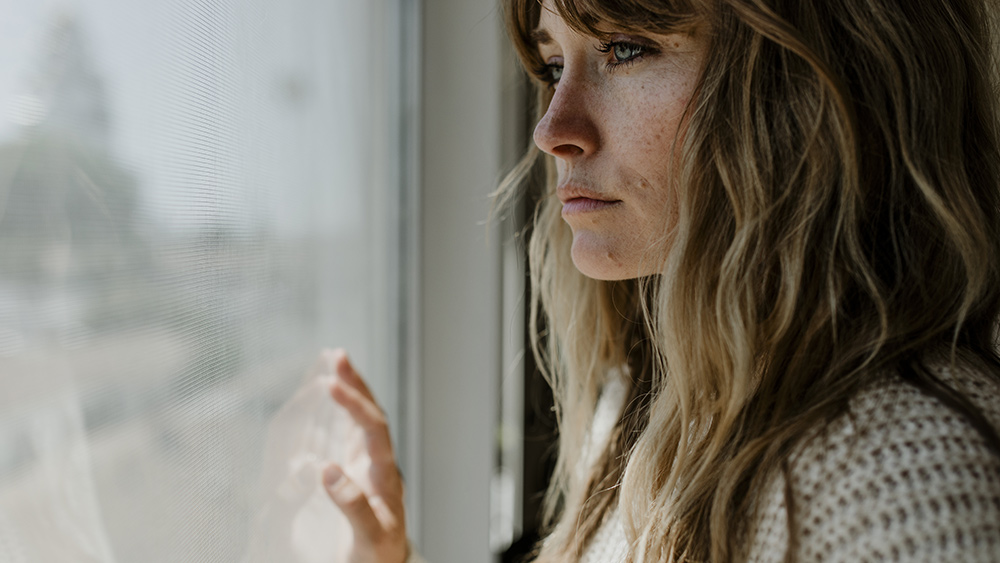
In an effort to prevent the spread of the Wuhan coronavirus (COVID-19), public health officials in Massachusetts have decided to mandate flu vaccines for any children, teenagers and young adults who want to attend child care, preschool, kindergarten, K-12, college and universities in the state. The rule was announced on Wednesday, August 19, and it applies to children as young as six months.
“The new vaccine requirement is an important step to reduce flu-related illness and the overall impact of respiratory illness during the COVID-19 pandemic,” said the state’s Department of Public Health (DPH) in a statement.
“Every year, thousands of people of all ages are affected by influenza, leading to many hospitalizations and deaths,” said Larry Madoff, the director of the DPH’s Bureau of Infectious Disease, in a statement.
“It is more important now than ever to get a flu vaccine because flu symptoms are very similar to those of COVID-19, and preventing the flu will save lives and preserve healthcare resources.” (Related: MEDICAL FASCISM: Australian Prime Minister says everyone will have to get vaccinated for coronavirus, whether they like it or not.)
Students need to be vaccinated by year-end
While students will still be allowed to attend classes for the time being even if they have not gotten the latest flu vaccine, the new mandate states that they need to get vaccinated by December 31 of this year in order to finish the rest of the academic year. Any other vaccine requirements mandated locally still apply.
Furthermore, students in districts that are holding all of their classes online through remote or distance learning models will not be exempted from the vaccine mandate.
The flu vaccine requirement also applies to all full-time undergraduate and graduate students who are under 30, as well as all full- and part-time students in health sciences courses. International students attending classes and programs in the state will also need to get the flu vaccine.
K-12 students who are homeschooled will be exempted, along with college, university and other higher education students who will “exclusively attend classes online and never visit campus in person.” For everyone who does not fit into either category, only medical and religious exemptions will be considered.
In the case of a medical exemption, the student must receive a document from a licensed physician detailing why the person cannot medically receive the flu vaccine. Religious exemptions must come from the student's parent or guardian, and it must clearly state that taking the vaccine conflicts with a person’s sincerely held religious beliefs.
According to the statement, doctors may recommend a second dose of the flu vaccine “depending on the child’s age and flu vaccination history,” but this second dose will not be mandatory.
Several states have already put in place certain flu vaccine requirements, such as for children attending daycare and preschool. All states already have mandates for public school students to have certain childhood vaccines. However, Massachusetts is the first state to require a flu vaccine for all of its students, including those attending college.
Vaccine mandate already stirring up controversy among people in Massachusetts
Several protests are already being organized against Massachusetts’ vaccine mandate. One such event, organized through social media, will bring together hundreds – possibly even thousands – of people to stage a protest outside the Massachusetts State House in Boston.
“What has flu got to do with COVID? This is so wrong on many levels and we need to show up,” wrote the organizer of the event.
Other people in the state are expressing their concerns as well. Jennifer Gaskin, a resident of Worcester, who describes herself as pro-vaccination and says that her whole family gets the flu vaccine annually, is worried about the slippery slope that comes with requiring people to get vaccinated.
“I understand why this mandate was put in place given the current pandemic and potential impact on hospitals,” said Gaskin. “However, I think it is morally wrong to take away the right to a choice for parents for a vaccination that has minimal efficacy in most cases.”
Gaskin worries that the vaccine mandate will set a precedent and that her children may be required to take the COVID-19 vaccine “which would not have been fully tested prior to release.”
Candice Edwards, executive director of Health Choice 4 Action MA, a non-profit that promotes the ability of Americans to make informed choices regarding their own health, believes that the mandate could have a negative impact on the education of many people across the state.
With the new flu vaccine mandate, Edwards said, children might miss out on the ability to get a decent education if their parents “make the reasonable decision to forgo influenza vaccination,” especially since homeschooling is not a viable option for many people, such as children with special needs and children from families that currently have less than ideal economic circumstances.
Medical decisions, Edwards said, should not be crafted by politicians but by patients, parents and physicians.
Even elected officials have raised their concerns regarding the vaccine mandate. State Rep. Michael Soter, a Republican representing the 8th Worcester district in the state’s House of Representatives, called the requirement “extremely scary.”
“We need to stop using scare tactics to put an agenda forward,” said Soter. “Many of you know I’m blunt, I’m straight to the point. This vaccine mandate should not and cannot move forward … I’m calling on the governor to step back from this mandate, step out of the room of the DPH and think about the average person.”
Soter said that he fully supports the work that Gov. Charlie Baker, another Republican, has done for the state. However, he does not support the mandate and will be writing a strong letter to the governor to not move forward with the vaccine requirement.
He added that while he is not against vaccines, he does not believe in mandating vaccinations. “People should have control of what’s injected into their body,” he said.
Local, state and national governments across the country and the world are trying to use the pandemic to push forward with tyrannical policies under the guise of protecting public health, such as Massachusetts’ flu vaccine mandate. Learn about other ways this is being done by reading the articles at Pandemic.news.
Sources include:
Please contact us for more information.




















